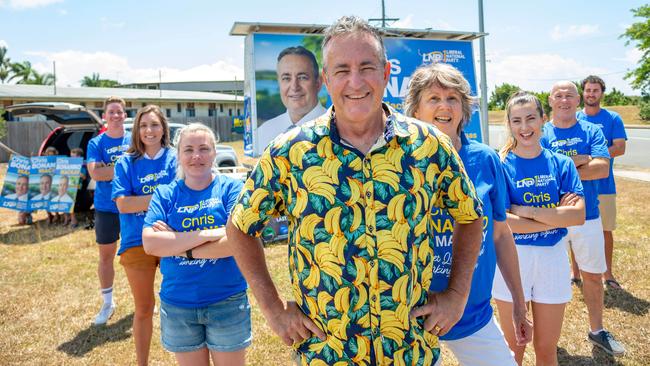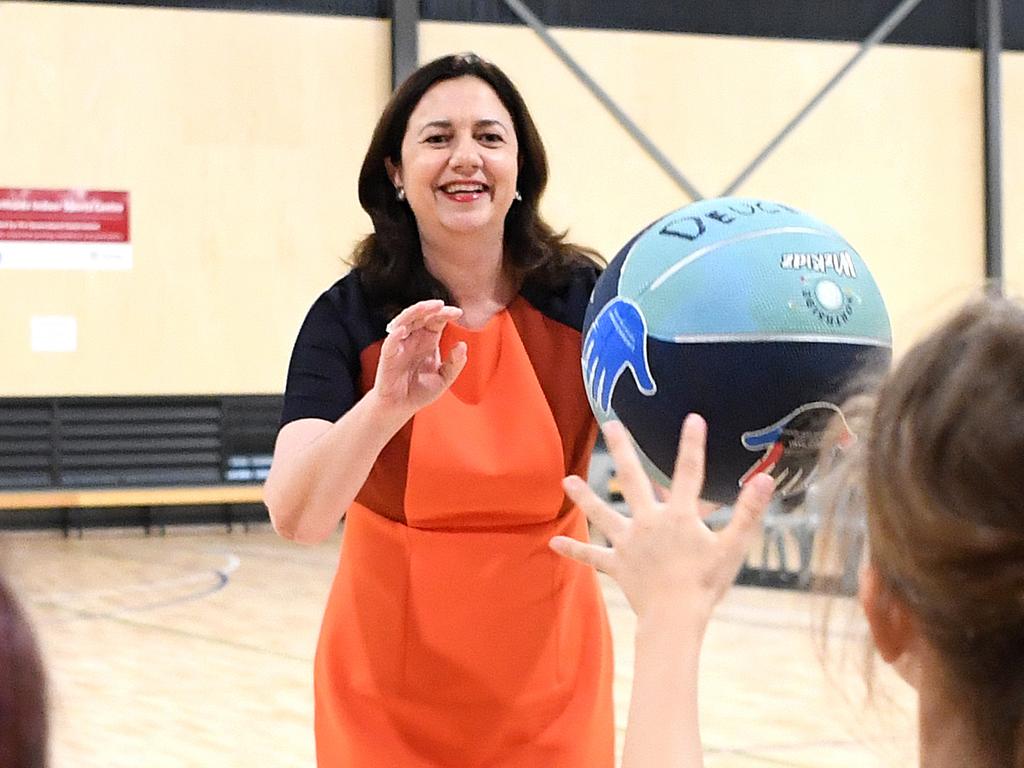Labor preference play at risk of backfiring
Labor’s 2016 move to introduce compulsory preferential voting could come back to haunt Annastacia Palaszczuk.

Labor’s last-minute move in 2016 to introduce compulsory preferential voting to harvest a growing Greens vote could come back to haunt Annastacia Palaszczuk, with a shrinking One Nation vote in regional areas set to benefit the Liberal National Party.
Among the seats being eyed off is Mackay, with a seemingly unassailable margin of 8.3 per cent.
LNP insiders are adamant their colourful candidate Chris Bonano is in with a chance. What makes that remarkable is that the conservative side of politics has never held the seat of Mackay.
It came close in 2012 on the back of the LNP’s landslide victory, but Labor stalwart Tim Mulherin held on by 0.53 per cent.
Consistent polling, including two Newspolls, showing the One Nation vote is down on 2017, and a strong swing in resources-dominated central and north Queensland to the Coalition in last year’s federal election have buoyed the LNP’s hopes this year.
Party strategists say the Palaszczuk’s government’s eleventh-hour move in 2016 to overturn Fitzgerald era recommendations, without consultation, and reintroduce compulsory preferential voting could help the conservatives as voters turn from One Nation.
If the polls are reflected at the ballot box, it would mean LNP candidates, who finished behind One Nation in some contests in 2017, could be pushed ahead of Labor by minor party preferences, potentially handing them regional seats like Keppel, Mackay and Thuringowa.
LNP strategists say their internal polling shows their candidates, including Mr Bonano, performing well, and that about 65 per cent of One Nation voters surveyed intend to put the LNP above Labor.
The LNP was further hurt in 2017 by One Nation’s decision to list sitting members last on how-to-vote cards, allowing Labor to win three Brisbane seats from the LNP on One Nation preferences.
“Because One Nation is down, we think we can finish in the top two in most contests and then hopefully get over the line on preferences,” a senior LNP source said.
“The reason why we weren’t the beneficiaries of it in 2017 was because of the very high One Nation vote, so in a lot of contests we finished third. This time, a lot of those preferences will flow back. Mackay is a real possibility for us.”
Mr Bonano, nicknamed Bananas, is a former Mackay councillor who most recently worked as a radio station manager and has worked in a variety of industries in north Queensland and central Queensland. “I know it’s a pretty hard one to win but I think we can do it,” he said.
“Mackay really needs a boost and hasn’t had one for the last five years. It’s been a safe Labor seat for roughly the past 100 years and it’s been taken for granted.”
One Nation leader Pauline Hanson visited Mackay at the weekend, once again asking voters to ignore the major parties.
Mr Bonano said the minor party’s regular wishful promises about wielding the balance of power had not helped voters.
The Palaszczuk government’s change to compulsory preferential voting came after nearly 70 per cent of voters picked only one candidate in the 2012 election. Many Greens votes were exhausted, proving no help to Labor.
Griffith University political scientist Paul Williams said compulsory preferential voting would “absolutely” benefit the LNP this campaign if the One Nation vote remained low.
While he thought the One Nation preference flow to the LNP would be higher this year, possibly at 80 per cent in some booths, victory for the LNP in Mackay was a stretch too far. “I can’t see Mackay falling,” he said. “If they couldn’t win it 2012, I don’t think they are going to win it now.”
He said the benefit to Labor of compulsory preferential voting came in “swings and roundabouts … This election it will probably be a net negative … but in 2017 it was a net positive.”








To join the conversation, please log in. Don't have an account? Register
Join the conversation, you are commenting as Logout